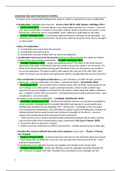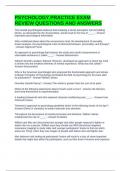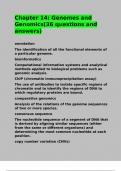Promise is not contractually binding unless made in a deed or supported by some consideration
Consideration= definition from case law – Currie v Misa (1875), AND, Dunlop v Selfridge (1915)
*Currie v Misa (1875)*: involved dispute concerning stopped payment of a cheque Lord Lush
says value consideration “consists of some right, interest, profit or benefit to one party or some
forbearance, detriment, loss or responsibility, given, suffered or undertaken by the other
*Dunlop v Selfridge (1915)*: Lord Dunedin approved Pollock’s definition of consideration: “act
of forbearance or the promise thereof is the price for which the promise of the other is brought,
so enforceable”
Rules of consideration
1) Consideration must move from the promisee;
2) Consideration must not be past;
3) Consideration must be sufficient but not need to be adequate
oConsideration must move from the promisee: person to whom promise was made can enforce
promise if they only provide consideration – Tweddle v Atkinson (1861)
*Tweddle v Atkinson (1861)*: couple were getting married. The father of the bride entered
agreement with father of the groom that they would each pay the couple a sum of money. The
father of the bride died without having paid. The father of the son also died so was unable to
sue on the agreement. The groom made a claim against the executor of the will. Held: claim
failed: The groom was not party to the agreement and the consideration did not move from him
oPast consideration is not good consideration e.g. clean windows, and after its done, promise
made to pay promise made after act is done needs to be before – Re McArdle (1951)
*Re McArdle (1951)*: son and wife lived in mothers house, after he death, house passed to son
and 3 siblings, son’s wife paid for repairs and improvements, mother made 4 children sign
agreement to pay her daughter-in law back for the repairs, mother died and children refused to
pay daughter-in-laws claim unsuccessful already performed act before promise made past
consideration not enforceable
oException to rule of past consideration – Lampleigh v Braithwaite (1615)
*Lampleigh v Braithwaite (1615)*: Braithwaite had killed another man and asked Lampleigh to
secure a pardon, Lampleigh went to considerable effort and expense to secure pardon who
subsequently promised to pay Lampleigh £100 did not pay Lampleigh’s claim successful,
even though past consideration, court still held the original request by Braithwaite contained an
implied promise that he would reward and reimburse Lampleigh for his efforts previous
request and subsequent promise were part of same transaction
where services are on request and both parties understand payment will be made, promise
may be enforceable even if consideration is past, confirmed by Re Casey’s Patents (1892)
Act must be done on promisor’s request
Parties must have understood act will be remunerated implied promise to pay at later date
oConsideration must be sufficient but need not be adequate: some value – Thomas v Thomas,
and, Chappell
*Thomas v Thomas (1842)*: husband expressed wish that his wife should be allowed to remain
in their house after his death for £1 per year, his executors later tried to get rid of her held
sufficient consideration
Consideration to be sufficient must be real, tangible and valuable (some actual value)
*Chappell v Nestle (1960)*: Nestle was offering a record (a copyright owned by Chappell) for
sale 1s 6d and 3 wrapper from their chocolate bars, permission to use copyright was not
1









